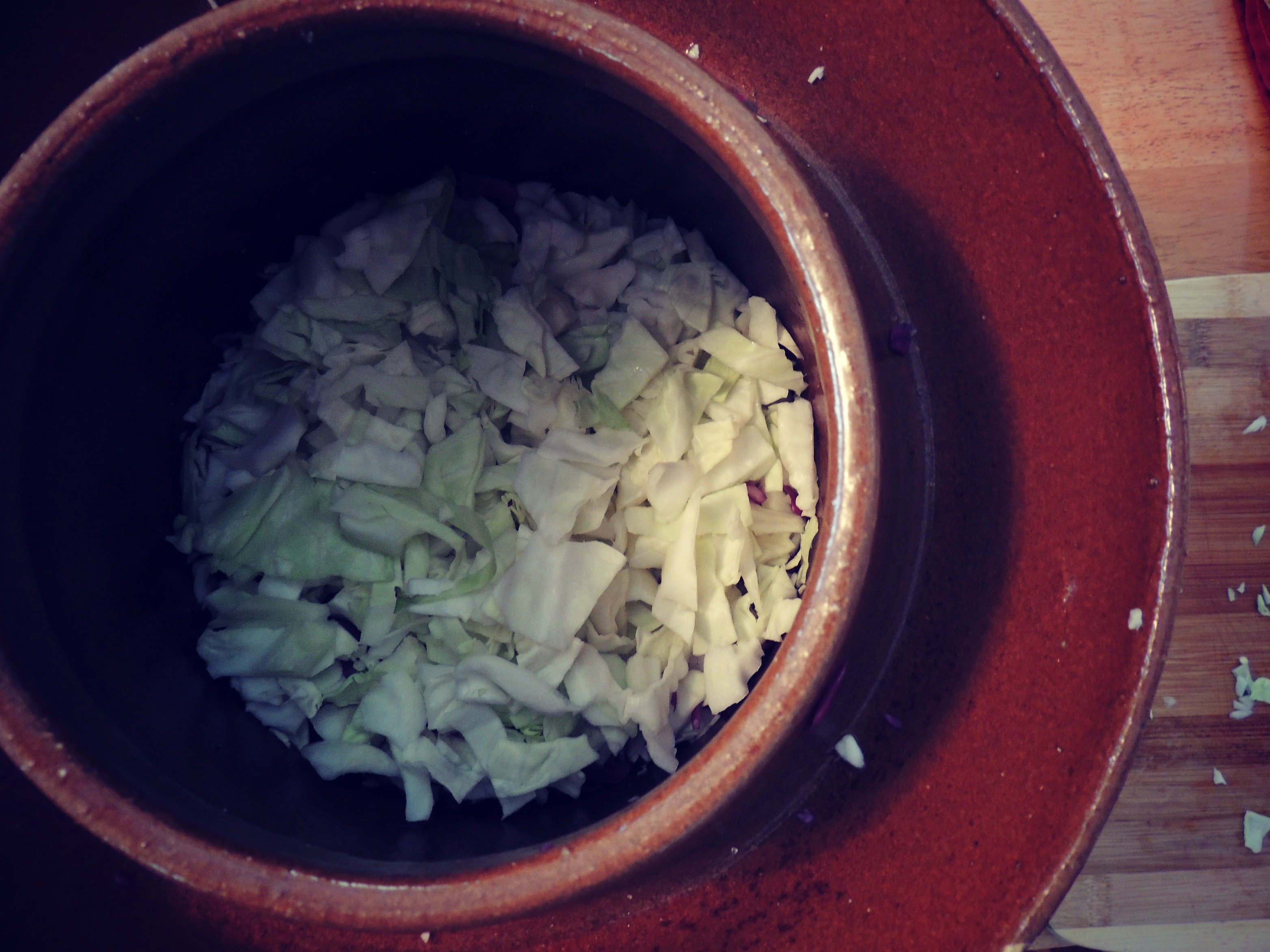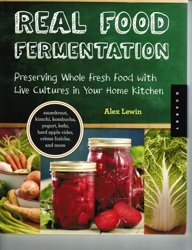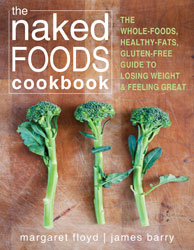'Tis the season for preserving the incredible fresh whole foods of the fall harvest! As a practice that provides a moment of pause in our frenzied world and reminds us of our delicate organic connection with the seasonal patterns of the earth, I really can’t help but consider making fermented fruits and vegetables more of an artistry than some sort of mundane task. Really, what’s not to love about the experience? There is an alluring charm to sweater-clad trips to the farmer's market and a leisurely stroll through overflowing bins of robust harvest vegetables. There is sort of pride in selecting plump cabbages and red beets to add to worn-out tote bags and carrying them home slung over your shoulders. I also find a particular sort of meditative joy in chopping and dicing, as I layer dynamic flavors and beautiful colors into my crock for the beginnings of sauerkraut, kimchi, chutneys and relishes...it’s almost poetic! But, all elaborate descriptors aside, fermenting whole foods in the home is actually a quite simple process- not much more difficult than making a salad. This genuine craft has many functional applications and incredible health benefits too. So, because I could go on and on about the more subjective joys of fermenting, here are 5 purely practical reasons to make home fermented fruits and vegetables this fall.
1. Preserves Food with Intact Nutrients
During the process of fermentation, lactobacilli organisms convert the natural sugars and starches in fruits and vegetables to create alcohol, lactic acid and acetic acid. These bio-preservatives inhibit putrefying bacteria and thus prevent food from spoiling. Through this incredible organic process, fruits and vegetables remain alive with flavor and peak-season nutrition for months on end without the "aid" of irritating synthetic additives or destructive high-heat canning processes. Beware that commercially "fermented" products are generally worth purchasing. Most are required to be pasteurized after culturing, obliterating all of the added organisms and requiring the addition of chemical preservatives anyways. Ferment at home whenever you can and make sure that purchased foods read "contains live cultures" if you must buy them at the store.
2. Increases the Bioavailability of Nutrients
As healthy lactobacilli bacteria proliferate, they produce a bounty of enzymes which work to “pre-digest” food prior to our indulging in it. By also breaking down food toxins like phytic acid, nitrites, nitrosamines, prussic acid and glucosides, fermentation organisms allow the body to reap the full benefits from food without any disruptive nutrient blocking or gastric irritation. This is a pattern made evident by ancient food practices from around the globe, where years of learned wisdom dictates traditional practices such as soaking and fermenting around certain foods. The importance of preparation is particularly significant in foods such as cassava, an tropical tuber which contains high levels of poisoinous cyanide when raw, but makes up a nutritious part of local traditional diets when fermented.
3. Creates New Nutrients
The microbial cultures working in fermentation do more than simply preserve existing nutrients, they also contribute their own. During their life-cycle, fermenting organisms create several of the B-complex vitamins including folic acid, riboflavin, niacin, thiamin and biotin. Lactobacilli also create omega-3 fatty acids which are particularly important to westerners who tend to include a disproportionate amount of omega-6's in their diet. Fermented products are also recognized for their enhanced antioxidant content, offering markedly stronger oxidative stress- preventing capacity than their raw or cooked counterparts. Many studies have shown that vegetables and fruits enhanced by fermentation have a powerful anti-carcinogenic ability and are recommended in cancer prevention efforts.
4. Increases Healthy Gut Flora
Bacteria is ubiquitous. While some strains of it can indeed be harmful, others are absolutely essential for the the body to function. As strange as it may seem, we depend on bacteria to digest foods and to create/build effective immune responses. In a culture where healthy bacteria have been ravished by antibiotics, processed foods and excessive chemical sanitation efforts, finding methods to restore vital supplies is essential. While probiotics are important in this process, consuming fermented foods is also a helpful (and phenomenally delicious) way to replenish healthy gut flora for digestive efficiency and immune system building. Studies have shown that consuming fermented foods can actually reduce rates of diarrhea and other diseases of the intestine.
5. Taste, taste, taste!
We are so often fixated on scouring books and the internet for what scientific “proof” exists to guide our decisions. Yet oftentimes the very wisdom we need resides in our instincts. In my experience, fermented vegetables and fruits just taste good! Some people find they offer a surprisingly tangy taste that may take some getting used to. But if given a chance, fermented foods can add a refreshingly spicy note and healthy punch to many meals. If you have tried commercial ferments and are a bit skeptical, go ahead and try some homemade versions with a fermenting crock- you will likely be swept away by the difference.
Check out our recipe for an Easy 5 Step Raw Sauerkraut. Do you ferment vegetables and fruits at home? Why?
Check out this post on the Healthy Home Economist's Monday Mania, Naturally Living Mamma's Naturally Living Mondays, Real Food Forager's Fat Tuesday and Penniless Parenting's Hearth and Soul.




